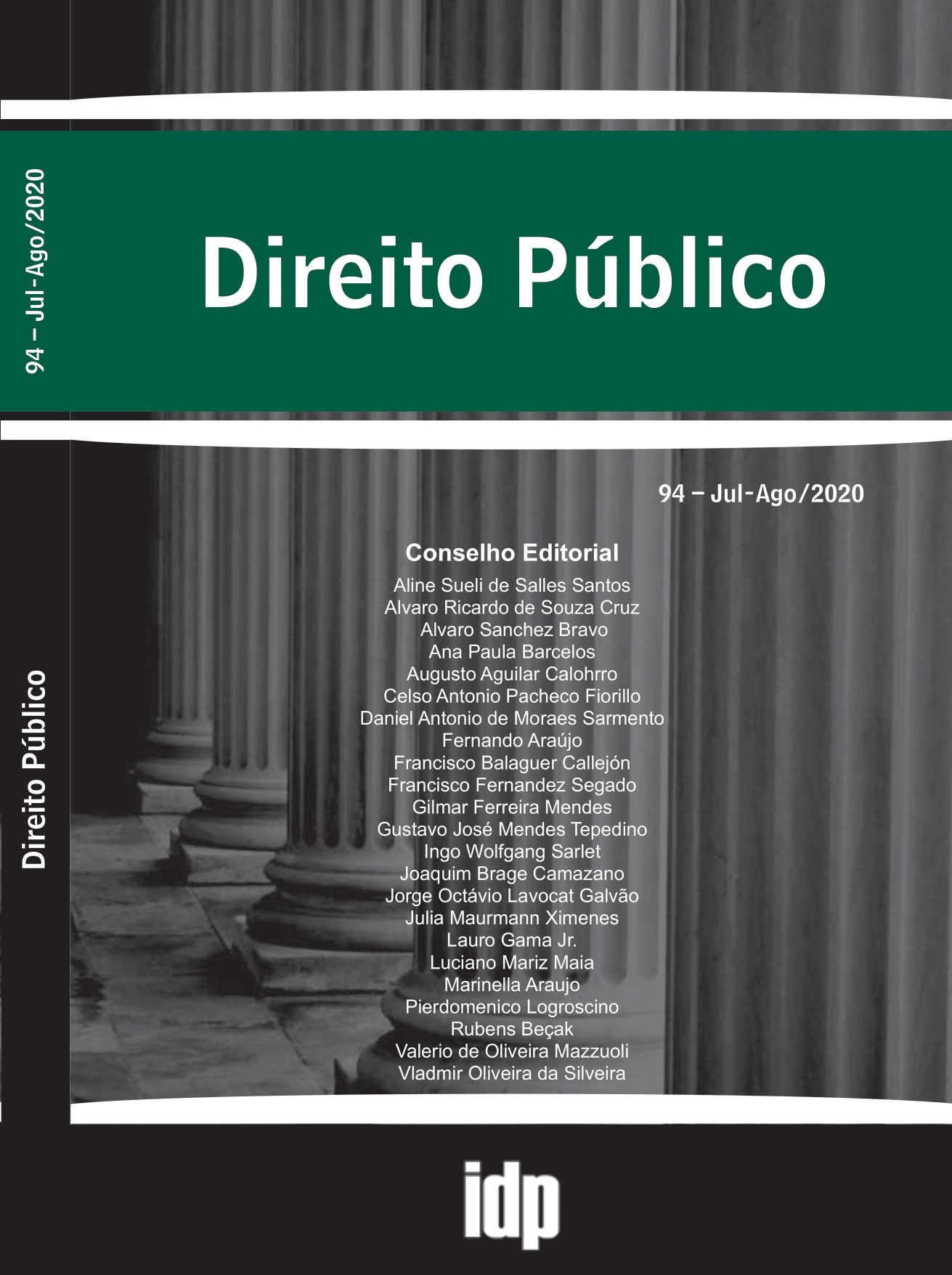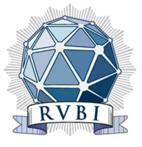FAKE NEWS NO CONTEXTO DE PANDEMIA E EMERGÊNCIA SOCIAL: OS DEVERES E RESPONSABILIDADES DAS PLATAFORMAS DE REDES SOCIAIS NA MODERAÇÃO DE CONTEÚDO ONLINE ENTRE A TEORIA E AS PROPOSIÇÕES LEGISLATIVAS
Palavras-chave:
Fake news, COVID-19, Moderação de Conteúdo Online, Liberdade de Expressão, AutorregulaçãoResumo
A disseminação de fake news durante a pandemia do COVID-19 ou outros momentos de emergência social representa desafio complexo para a regulação. Quais medidas o Estado e as plataformas de mídia social devem adotar, segundo a literatura sobre moderação de fake news ligada a questões de saúde pública ou na moderação de conteúdo abusivo em geral? O Poder Legislativo adota tais diretrizes fornecidas pelos estudos científicos? Para responder à primeira pergunta de pesquisa adotamos metodologia de ampla revisão de literatura de modo a identificar diretrizes consensuais nos estudos acadêmicos e relatórios sobre tema elaborados por entidades governamentais e privadas. Para responder à segunda pergunta de pesquisa adotamos metodologia empírica quantitativa, mediante análise documental individualizada do universo de todos os 49 projetos de lei no Congresso Nacional, desde a entrada em vigor do Marco Civil da Internet, que propõem alterações ao regime de obrigações dos provedores de aplicação. Construímos uma tipologia para classificar tais proposições. Os resultados da análise doutrinária e da pesquisa empírica indicam uma profunda desconexão entre, de um lado, a teoria sobre como fake news, inclusive durante a pandemia, deveria ser regulada e, de outro, o conjunto das proposições legislativas discutidas no Congresso.Downloads
Referências
ANNANY, Mike. Crawford, Kate. Seeing without knowing: Limitations of the transparency ideal and its application to algorithmic accountability. New Media & Society, 2013. Disponível em: https://journals.sagepub.com/doi/abs/10.1177/1461444816676645
AUSTEN-SMITH, David. BANKS, Jeffrey S. Information Aggregation, Rationality, and the Condorcet Jury Theorem. American Political Science Review. V. 90, n. 1, 1996. Disponível em: https://authors.library.caltech.edu/67312/1/2082796.pdf
BAKER, C. Edwin. Media, Markets, and Democracy: Communication, Society and Politics. Cambridge University Press, 2001. Disponível em: encurtador.com.br/lrtB4
BALKIN, Jack. The Future of Free Expression in a Digital Age. Pepperdine Law Review. v. 36, 2009. Disponível em: encurtador.com.br/iDT29
BALKIN, Jack. Free Speech in the Algorithmic Society: Big Data, Private Governance, and New School Speech Regulation. UC Davis Law Review. V. 51, 2018. Disponível em: encurtador.com.br/fiq47
BARCELLOS, Ana Paula de. Intimidade e Pessoas Notórias. Liberdades de Expressão e de Informação e Biografias. Conflito entre Direitos Fundamentais. Ponderação, Caso Concreto e Acesso à Justiça. Tutelas Específica e Indenizatória. Revista Direito Público. n. 5, 2014. Disponível em: https://www.portaldeperiodicos.idp.edu.br/direitopublico/article/view/2372
BARRETT, Paul. Who Moderates the Social Media Giants? A Call to End Outsourcing. NYU Stern. Center for Business and Human Rights, 2020.
BARROSO, Luís Roberto. Colisão entre liberdade de expressão e direitos da personalidade. Critérios de ponderação. Interpretação constitucionalmente adequada do Código Civil e da Lei de Imprensa. Revista de Direito Administrativo. N. 235, Jan-Mar 2004. Disponível em: https://bibliotecadigital.fgv.br/ojs/index.php/rda/article/view/45123
BARZILAI-NAHON, Karine. Toward a Theory of Network Gatekeeping: A Framework for Exploring Information Control. Journal of The American Society For Information Science and Technology. n. 59, 2008. Disponível em: encurtador.com.br/cmEM2
BAVEL, J.J.V., BAICKER, K., BOGGIO, P.S. et al. Using social and behavioural science to support COVID-19 pandemic response. Nature Human Behavior. V. 4, 460–471, 2020.
BELLI, Luca. A heterostakeholder cooperation for sustainable internet Internet policymaking. Internet Internet Policy Review. n. 4, 2015. Disponível em: encurtador.com.br/huDHS
BONELLI, Maria Gloria. Profissionalismo, gênero e significados da diferença entre juízes e juízas estaduais e federais. Contemporânea - Revista de Sociologia da UFSCar, v. 1, p. 103-123, 2011. Disponível em: encurtador.com.br/beqv7
BROWN, Ian. MARSDEN, Christopher T. Regulating Code. Good governance and better regulation in the information age. MIT Press, 2013. Disponível em: encurtador.com.br/beisz
CAPLAN, Robyn. Content or Context Moderation. Artisanal, Community-Reliant, and Industrial Approaches. Data & Society, New York, nov. 2018. Disponível em: https://datasociety.net/library/content-or-context-moderation/
CITRON, Danielle Keats. Technological Due Process. WASH. U. L. REV. v. 85, 2008. Disponível em: encurtador.com.br/ipJL3
DAVIDSON, Thomas et al. Automated Hate Speech Detection and the Problem of Offensive Language. Proceedings of The 11th International AAAI Conference on Web and Social Media (ICWSM-17), 2017. Disponível em: https://arxiv.org/abs/1703.04009.
DESAI, Deven, KROLL, Joshua. Trust but Verify: A Guide to Algorithms and the Law. Harvard Journal of Law and Technology. v. 31, no. 1, 2017. Disponível em: https://jolt.law.harvard.edu/assets/articlePDFs/v31/31HarvJLTech1.pdf
DENARDIS, Laura. Hidden Levers of Internet Control. Information, Communication &
Society.v. 15.n. 5.p. 720-738, 2012. Disponível em: encurtador.com.br/isUXY
DIAKOPOULOS, Nicholas. Accountability in Algorithmic Decision Making. Communications of the ACM. Vol. 59 No. 2, 2016. Disponível em: https://dl.acm.org/doi/10.1145/2844110
FLAXMAN, Seth. GOEL, Sharad. RAO, Justin M. Filter Bubbles, Echo Chambers, and Online News Consumption. Public Opinion Quarterly. V. 80, n. S1, 2016. Disponível em: https://5harad.com/papers/bubbles.pdf
GOLDMAN, Alvin. BAKER, Daniel. Free Speech, Fake News, and Democracy. First Amendment Law Review. V. 18, 2019.
GOOGLE. Transparency Report, 2018. Disponível em: encurtador.com.br/etET0
GRAHAM, Mark. STRAUMANN, Ralph K. HOGAN, Bernie. Digital Divisions of Labor and Informational Magnetism: Mapping Participation in Wikipedia. Annals of the Association of American Geographers. v. 105, n. 6, 2015. Disponível em: encurtador.com.br/ouIT6
GRIMMELMANN, James. Speech Engines. Minnesota Law Review. N. 98, 2014. Disponível em: https://james.grimmelmann.net/files/articles/speech-engines.pdf
GRIMMELMANN, James. The Virtues of Moderation. Yale J.L. & Tech, 2015. Disponível em: https://scholarship.law.cornell.edu/facpub/1486/
HARGITTAI, Eszter et al. Cross-ideological discussions among conservative and liberal bloggers. Public Choice. N. 134, p. 67-86, 2008. Disponível em: encurtador.com.br/fwAER
HARTMANN, Ivar A. Let the Users be the Filter? Crowdsourced Filtering to Avoid Online Intermediary Liability. Journal of the Oxford Centre for Socio-Legal Studies. v. 2017, n. 1, 2017. Disponível em: encurtador.com.br/hjowR
HARTMANN, Ivar A. Liberdade de Expressão e Capacidade Comunicativa. Um novo critério para resolver conflitos entre direitos fundamentais informacionais. Direitos Fundamentais e Justiça. V. 12, n. 39, 2018.
HARTMANN, Ivar A. Regulação da Internet e novos desafios da proteção de direitos constitucionais: o caso do revenge porn. Revista de Informação Legislativa. V. 55, n. 219, 2018b.
HUMPHREYS, Sal. Ruling the Virtual World. Governance in Massively Multiplayer Online Games. European Journal of Cultural Studies. n. 11, 2008. Disponível em: https://journals.sagepub.com/doi/abs/10.1177/1367549407088329
ISENSEE, Josef. KIRCHHOF, Paul. Handbuch des Staatsrechts. Band IV – Freiheitsrechte. Heidelberg: C.F. Müller Juristischer Verlag, 1989. Disponível em: encurtador.com.br/moAU4
JHAVER, S., BRUCKMAN, A., GILBERT, E. Does transparency in moderation really matter?: User behavior after content removal explanations on Reddit. Proceedings of the ACM on Human-Computer Interaction, 2019. Disponível em: https://dl.acm.org/doi/10.1145/3359252
KAYE, David. Speech Police: The Global Struggle to Govern the Internet. Columbia Global Reports, 2019. Disponível em: encurtador.com.br/vFLQV
KITTUR, Aniket. KRAUT, Robert E. Harnessing the Wisdom of Crowds in Wikipedia: Quality Through Coordination. CSCW’08, 8-12 Novembro, San Diego, California, EUA, 2008.
KLEIN, David O. WUELLER, Joshua R. Fake News: A Legal Perspective. Journal of Internet Internet Law. v. 20, n. 10, 2017. Disponível em: encurtador.com.br/bMOP8
KLEINWÄCHTER, Wolfgang. Internet Internet co-governance. Towards a multilayer multiplayer mechanism of consultation, coordination and cooperation (M3C3). in: MANSELL, Robin (Org.). The information society. v. III (Democracy, governance and regulation). New York: Routledge, 2009. Disponível em: encurtador.com.br/gluxY
KLONICK, Kate. The New Governors: The People, Rules, and Processes Governing Online Speech. Harvard Law Review. N. 131, 2018. Disponível em: encurtador.com.br/svKPW
LADHA, Krishna K. The Condorcet Jury Theorem, Free Speech, and Correlated Votes. American Journal of Political Science. v. 36, n. 3, 1992. Disponível em: https://www.jstor.org/stable/2111584?seq=1
LESSIG, Lawrence. The zones of cyberspace. Stanford Law Review. V. 48, 1996. Disponível em: https://www.jstor.org/stable/1229391
MUELLER, Milton et al. The Internet Internet and Global Governance: Principles and Norms for a New Regime. Global Governance. n. 13, 2007. Disponível em: encurtador.com.br/afgwF
OGUS, Anthony. Rethinking self-regulation. Oxford Journal of Legal Studies. V. 15, 1995. Disponível em: encurtador.com.br/pyLSY
PASQUALE, Frank. The Black Box Society. Harvard University Press, 2015. Disponível em: https://www.hup.harvard.edu/catalog.php?isbn=9780674970847
PASQUALE, Frank. Platform Neutrality: Enhancing Freedom of Expression in Spheres of Private Power. Theoretical Inquiries L. v. 17, 2016. Disponível em: encurtador.com.br/avAFV
RISCH, Michael. Virtual Rule of Law. West Virginia Law Review. n. 112, 2009. Disponível em: https://papers.ssrn.com/sol3/papers.cfm?abstract_id=1463583
ROBERTS, Sarah. Behind the Screen: Content Moderation in the Shadows of Social Media. Yale University Press, 2019. Disponível em: encurtador.com.br/iyLO5
SARLET, Ingo; ROBL, Ilton Filho. Estado Democrático de Direito e os Limites da Liberdade de Expressão na Constituição Federal de 1988, com Destaque para o Problema da sua Colisão com outros Direitos Fundamentais, em Especial, com os Direitos de Personalidade. Revista da Academia Brasileira de Direito Constitucional, v. 08, n. 14, Constituição, Economia e Desenvolvimento, 2016. Disponível em: http://abdconst.com.br/revista15/estadoIlton.pdf
SARLET, Ingo; HARTMANN, Ivar. Direitos Fundamentais e Direito Privado: a Proteção da Liberdade de Expressão nas Mídias Sociais. Revista Direito Público. V. 16, n. 90, 2019.
SHAW, Aaron. Centralized and Decentralized Gatekeeping in an Open Online Collective. Politics & Society. n. 40, 2012. Disponível em: encurtador.com.br/ekoLQ
STARCK, Christian. Kommentar zum Grundgesetz. Band I. Band 1, Präambel, Artikel 1 bis 19. Munique: Franz Vahlen GmbH, 2005. Disponível em: encurtador.com.br/uAGJW
STERN, Klaus. Das Staatsrecht Der Bundesrepublik Deutschland. Band IV/1. Die einzelnen Grundrechte. Munique: C.H. Beck, 2006. Disponível em: encurtador.com.br/dhsQX
STIGLITZ, Joseph. Regulation and failure. In: MOSS, David A.; CISTERNINO, John A. New perspectives on regulation. Cambridge: The Tobin Project, 2009. Disponível em: https://www.tobinproject.org/books-papers/new-perspectives-regulation
SUNSTEIN, Cass R. Republic.com 2.0. Princeton University Press, 2009. Disponível em: https://www.jstor.org/stable/j.ctt7tbsw
SUZOR, N., VAN GEELEN, T., & MYERS WEST, S. Evaluating the legitimacy of platform governance: A review of research and a shared research agenda. International Communication Gazette, v.80.n.4.p.385–400, 2018. Disponível em: encurtador.com.br/bpxS8
TUFEKCI, Zeynep. Algorithmic harms beyond Facebook and Google: emergent challenges of computational agency. Colo. Tech. L.J. v.13. n.203, 2015. Disponível em: https://ctlj.colorado.edu/wp-content/uploads/2015/08/Tufekci-final.pdf
TUSHNET, Rebecca. Power Without Responsibility: Intermediaries and the First Amendment. The George Washington Law Review. v. 76, 2008. Disponível em: encurtador.com.br/wAOS9
TUTT, Andrew. An FDA for Algorithms. Administrative Law Review. 69 v. 1, 2017. Disponível em: encurtador.com.br/glFJR
WU, Tim. When code isn’t law. Virginia Law Review. N. 89, 2003. Disponível em: encurtador.com.br/cRVW2
Downloads
Publicado
Como Citar
Edição
Seção
Licença
O(s)/A(s) autores(as) dos manuscritos submetidos concorda(m) com as regras a seguir:
1) Todos os autores e autoras participaram do trabalho, são responsáveis pelas ideias e conceitos nele emitidos e atestam sua conformidade com os princípios éticos exigidos.
2) Todos os autores e autoras concordam com a forma final do trabalho e em ceder os direitos para publicação nos canais de publicação da Escola de Direito do IDP.
3) Todos os autores e autoras informam que o manuscrito é de sua autoria e assumem a responsabilidade pelo trabalho, declarando que a obra a ser publicada não infringe quaisquer direitos de propriedade intelectual de terceiros.
3.1) Em caso de submissão simultânea, além da reprovação imediata do artigo e comunicação ao(s) respectivo(s) periódico(s), a Revista Direito Público se reserva o direito de não receber novas submissões de todos os autores implicados pelo prazo de 2 (dois) anos, contado a partir da data de ciência do fato.
4) Todos os autores e autoras autoriza(m) a edição de seu trabalho e cede(m) à Escola de Direito do IDP os direitos de autor para reproduzir, editar e publicar ou veicular o citado trabalho em qualquer forma midiática, resguardada a autoria, em particular sob forma digital, em arquivo eletrônico online na Internet, bem como armazená-los em seu repositório de acordo com o desenvolvimento do processo editorial. Esta concessão não terá caráter oneroso para a Escola de Direito do IDP, não havendo remuneração sob qualquer modalidade pela utilização do referido material, tendo este o caráter de colaboração científica.












